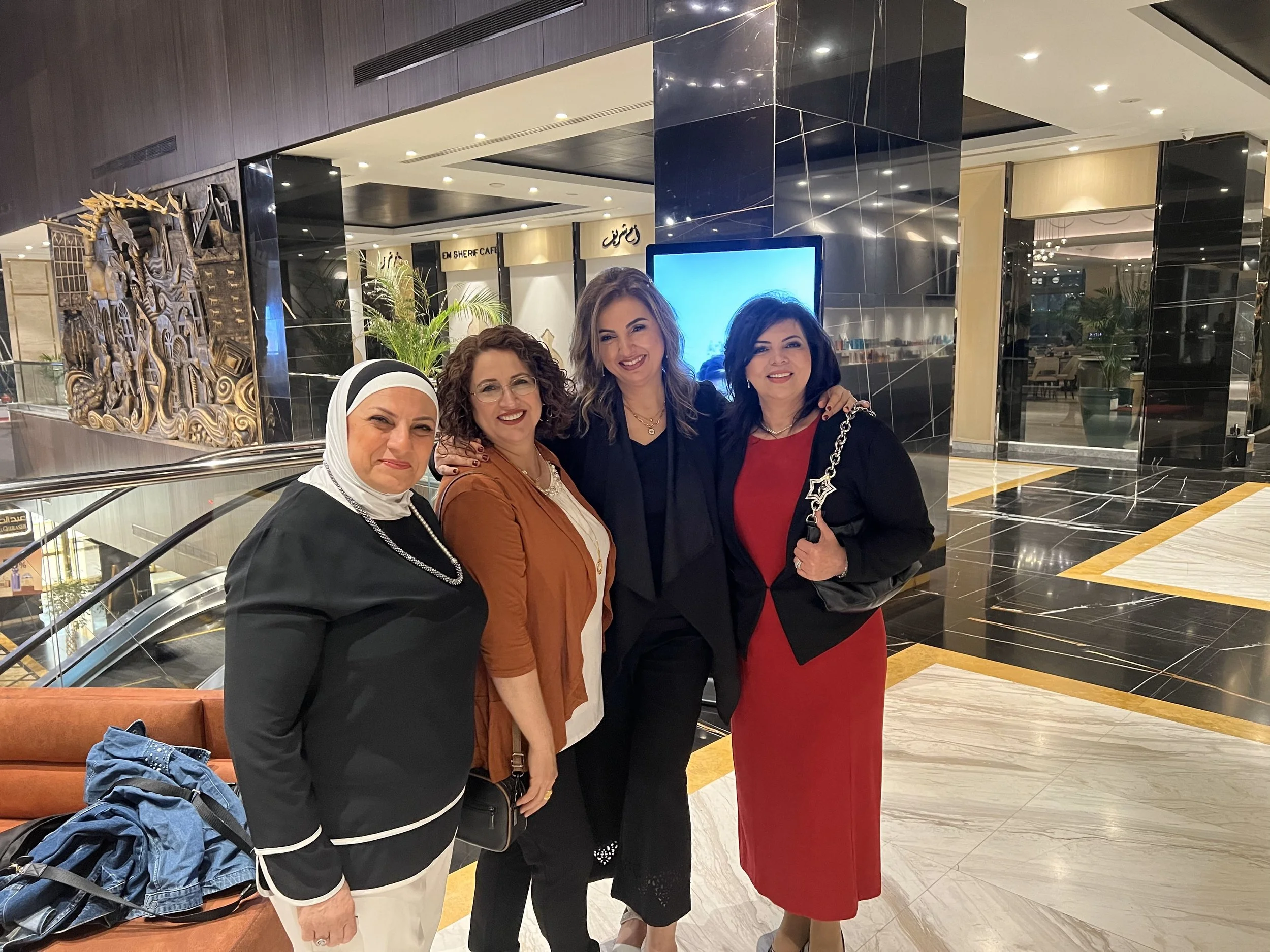Returning Home to Baghdad
By Dr. May Antone
My name is May Antone, and I am a practicing internist physician in Southfield, Michigan. I finished medical school in Baghdad, Iraq in 1993 and immigrated to the U.S. in 1995 where I did my residency. I have not returned to Iraq for over 25 years.
I recently received news that one of my medical school friends’ daughters was getting married. The reception in Baghdad was going to include several of my old classmates. We explored the idea of visiting and making it a reunion of our graduating class. A friend of mine in California and another from Sweden encouraged me to attend.
I admit I was a bit concerned with the current conflict in Gaza, the attacks on U.S. forces in Iraq by Iranian-backed militia, and with atrocities committed by the terrorist group ISIS still in mind. But, after some thought and discussion with my husband who encouraged me, I concluded this was a once-in-a-lifetime opportunity and decided to make the trip. I visited there for 10 days this November and am so glad I did. It ended up being the trip of a lifetime, and more rewarding than anything I could have imagined.
When I arrived at Baghdad International Airport, I found the customs officers professional, caring, kind, and friendly. They went out of their way to provide special attention to visitors from foreign countries. Once they knew I was a former Iraqi with a current U.S. passport, they welcomed me warmly and, on their own initiative, waived the entry visa fees.
I stayed in Baghdad for 10 days on my own, staying in the Babylon Hotel. I visited Baghdad’s modern suburbs and was amazed with all the busy construction and the creativity of new building designs. I was pleasantly surprised by all the new technologies that appeared to be everywhere.
The wedding I attended was in a banquet hall that would compete with any fancy one here in the United States. The reception itself (other than the lack of alcohol since my friends were all Muslim) was otherwise indistinguishable from any here in the U.S., with celebrations and dancing—without the old-time culture of separation of the sexes.
Speaking about interaction among the sexes, I visited many coffee shops, restaurants, and public places and similar to what you find here, they were full of couples, some holding hands, without any awkwardness that used to accompany such gatherings decades ago when I grew up there.
I also visited older more congested markets like the “Suk Al-Surai” and the “Mutanabi Street.” I ate sandwiches and drank fresh orange juice from street vendors. I found everyone whom I met to be an example of kindness, simplicity, and humbleness. Everyone with whom I interacted showed me an amazing level of hospitality, care, and politeness and without any of the street harassment females walking alone used to sometimes encounter decades ago.
To be clear, it was obvious to many that I was visiting from another country since I did not wear a head scarf and appeared clearly to be of the Christian faith (I wear a cross). Yet, everyone I met was accepting and tolerant. Although I have no more relatives there, I felt I was among my larger family in Baghdad.
While there, I visited my old high school, a Christian one run by nuns. I found them still teaching, with the school fully protected by the government. The head nun told me most of the girls are Muslims and many wear the traditional head scarf. But their families appreciate the high level of teaching by the nuns, so much so that there is a huge demand and a long wait list from the general Muslim public to enroll their daughters into that school; another example of the tolerance that has developed there.
Another astonishing observation is that when I visited shops, I found them full of Christmas decorations, trees, and ornaments, even though most shoppers are Muslim. I was told many Muslims now install the Christmas tree. I visited the churches that I knew when I lived there, and found them all still there and well, and even found some newer ones—another example of the newfound tolerance and acceptance of others.
My friends there told me about the sectarian violence between Shiite and Sunni that took place in 2006 to 2008 and was started by the terrorist group ISIS and how it affected many. Luckily, and despite the personal tragedies of some of the stories I heard (as an example, a friend’s brother was killed based on his sect), it seems society learned hard lessons from those years. It is clear that that ugly history is behind them and there were no religious issues that I could detect that could cause future harm. Hopefully none.
As I was preparing to leave Baghdad to go back to the U.S., I felt that although I had arrived with a spirit that was shattered with fear and concern, it had been put back together with the love and warmth I felt from my friends and everyone there. As I hugged them goodbye, I felt I was leaving a land that could be a paradise on earth if the people continue to substitute love for hate, and acceptance for intolerance. And from everything I experienced there, the people of Iraq are indeed on a most wonderful journey towards a happy future.
I pray that they keep it that way.

